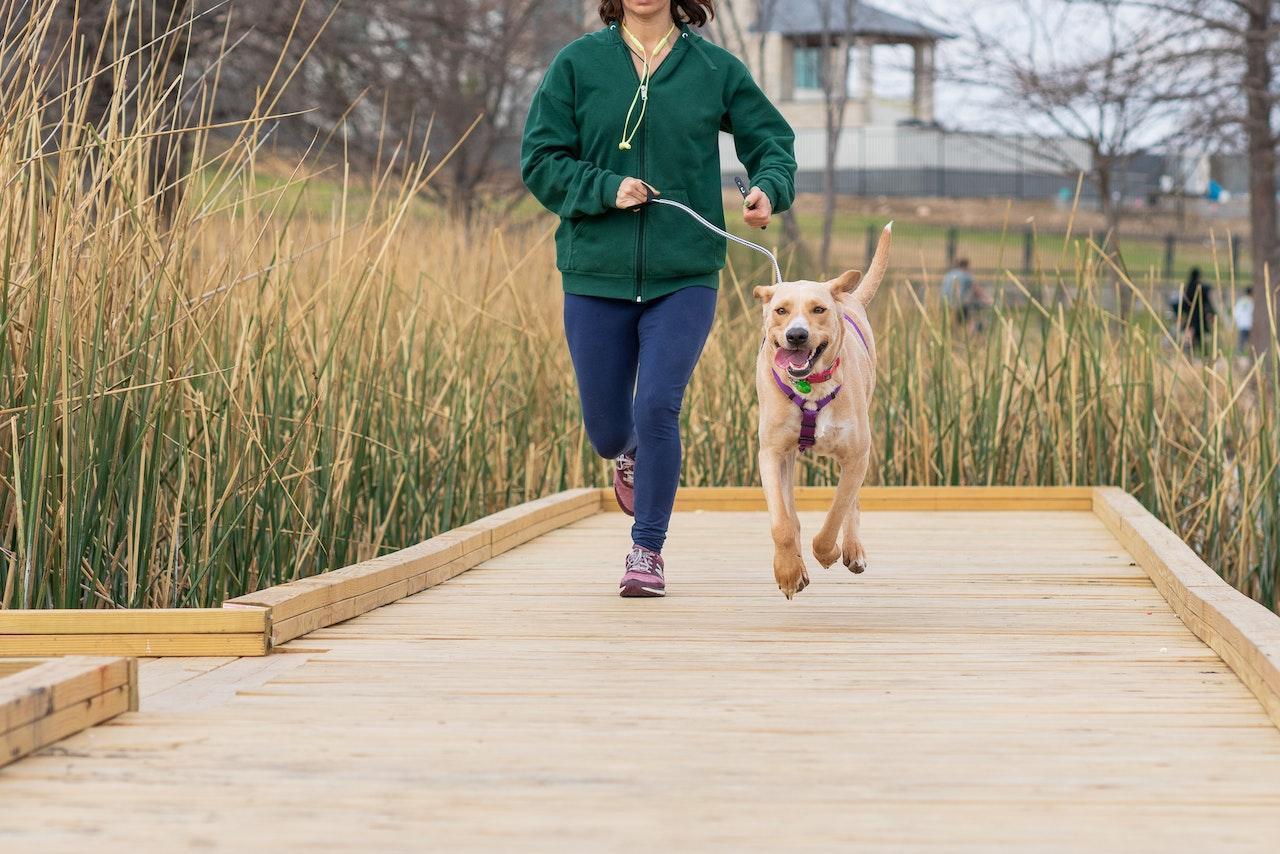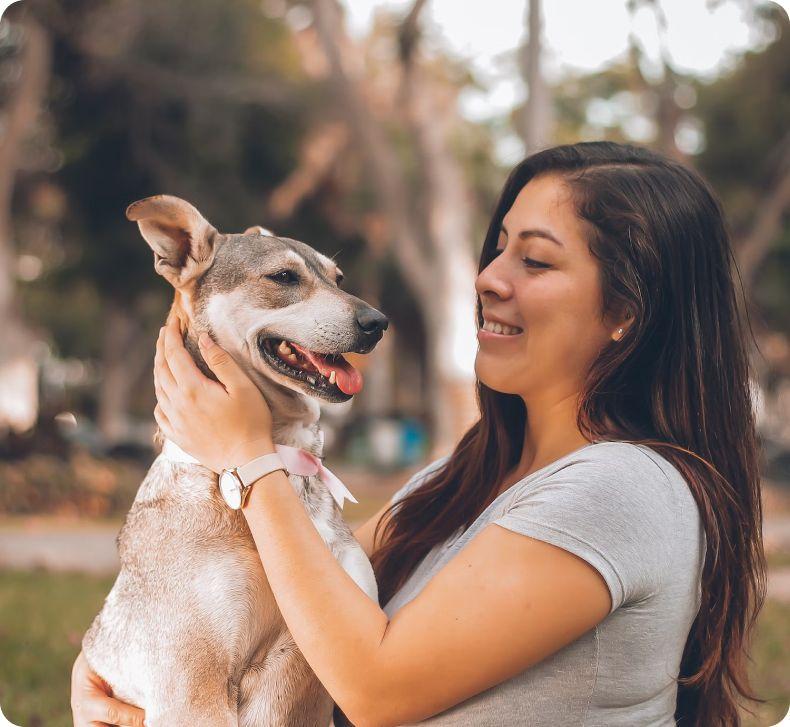Introduction
If you’re a pet parent, dogs running away in joy after being given the freedom from the dreaded leash is probably a regular sight. Nothing feels as good to a dog as chasing after some unsusceptible critter and getting in a good run. And like any other animal, sprinting across distances and the random workout is sure to leave your dog breathing heavily.
In most instances, panting is nothing to worry about especially after an exhilarating exercise. It is pretty commonplace. In fact, more often than not it is also good for the dog. Panting helps your furry friends to cool themselves and regulate their body temperature. By rapidly inhaling and exhaling air your dog is able to allow water and heat to evaporate from their mouth and lungs.
However, at times there are cases when your dog’s heavy breathing could be a sign of something serious. Heavy breathing even when your dog has not undergone any significant physical activity is often a symptom of other underlying conditions that may be harmful to your dog. Identifying the signs and symptoms is the first step to figuring out how to help your furry friend. Read on to learn more about why your dog is breathing heavily and what you can do to help your canine get better.
Dog Breathing Heavily? When To Be Worried!
Before you jump the gun and believe your dog may be dying. Take a min to identify if your dog is just experiencing normal panting or if in fact, they are breathing heavily. Many studies confirm that a healthy dog takes up to 15 to 30 breaths per minute on average when at rest. When undergoing physical activity this number could shoot up to 10 times. If such is the case then there is nothing to be worried about. But there are a few other things you should look out for to ensure all is well with your dog.
1. Visibly Laboured Breathing
If you notice that your dog experiencing heaving breathing without any exertion, it may be a sign of something more severe. Heavy breathing accompanied by loud rasping or hoarse noises is a clear indication to have your dog checked up.
2. Overly Restless
Canines when experiencing discomfort are usually overly restless. Their movements are often agitated; accompanied by shaking and pacing. It’s always good to get them checked up to make sure all is good.
3. Panting without Being Excessively Warm
Normally after exerting energy, the body temperature of dogs tends to shoot up; they cool themselves down by panting. However, if you notice your dog experiencing heavy breathing without being overly warm it could be a sign that something is wrong.
4. Being Unusually Tired
If your dog is struggling to move around, exhibiting poor appetite, and refusing to drink, there’s a good chance all is not well with the pooch.
5. Rapid Respiration
Heavy breathing often signifies that there is something wrong with your dog. This along with quick intakes of breath is a clear sign to seek medical attention right away.
6. Blue Tinge in Gums
Blue-tinged gums are a clear sign that your dog is not receiving enough oxygen. The discoloration is due to the low oxygen content in the blood. This condition in dogs is known as cyanosis and requires immediate medical attention.
Why Is My Dog Panting So Much? Possible Diseases
If you’re a dog parent, the thought as to “why is my dog panting so much?” might have crossed your mind at least a few times. At times there is a good explanation for what it is. Continue reading to learn how heavy breathing could be a sign of the following underlying diseases.
1. Chronic Bronchitis
Chronic Bronchitis is characterised by coughing, wheezing, and difficulty breathing. It affects the respiratory system and continues to persist but with treatment, symptoms can be alleviated.
2. Heart Failure
Lack of oxygen is a common denominator when it comes to heart failure in dogs. Bluish gums, swollen bellies, and heavy breathing is a sign that you need to get help for your dog.
3. Cushing’s Syndrome
Commonly found in older dogs, Cushing’s disease is the result of hormonal imbalance in the body. Dogs suffering from Cushing’s syndrome often experience difficulty breathing, hair loss, excessive appetite, and skin infections.
4. Heatstroke
Heatstroke is a common condition in dogs during the summer months. Excessive panting is one of the biggest indicators of heatstroke and care should be taken by dog owners to ensure that your dog is kept cool and hydrated.
5. Injury
Dogs that are experiencing pain or injury often display laboured breathing. They will find it difficult to move around and may often show signs of distress
What Should You Do Now? Treatment Options
Now that you are aware your dog is unwell, it’s time to figure out how you can help your dog get better. Here are a few steps you can take to help your furry friend.
Be Prepared – There’s no telling when or if your dog will fall sick. But as a dow owner is it always best to educate yourself on what to look out for. Dog DNA tests help identify what diseases your dog may be susceptible to along with various other genetic traits. This information allows vets to make an informed diagnosis according to the dog’s needs.
Restrict Movement – If you notice that your dog is not doing well it is essential that you do not excite or move your dog about. Physical activity can be taxing on the body and may make matters worse.
Seek Medical Attention – Do not prolong seeking medical attention. As soon as you notice symptoms, take your dog to the vet. It is also good to have all your dog’s information on hand to make it easier for the vet to provide treatment.
Keep Up with Treatment – Dogs with chronic conditions may need a little more care than usual. It is pertinent that dog parents ensure that their dogs are given medication and treatment as prescribed by the vet and that they follow the complete treatment plan.
Conclusion
To most of us, dogs are not just pets but rather members of the family. Knowing that your dog is sick is not only worrisome but upsetting at times. As a precaution, dog parents should always be on the lookout for anything out of the ordinary in their canines. Especially in a case where you notice your dog breathing heavily.
FAQs
A dog breathing heavy while sleeping is a normal & healthy sign. It is usual for dogs to breathe heavily while resting, especially during summers. In summer, dogs have to work harder to regulate their body temperature.
A healthy dog takes in at least 15 to 30 breaths per minute.
If your dog is taking 40-50 breaths per minute for a prolonged period of time, that’s when you must consult your vet.
- Gasping or open mouth breathing
- Shallow breathing
- Coughing
- Heavy Breathing
- Nostrils flaring open
No, if it’s after playtime or heavy exercise. Yes, if the rapid breathing occurs while your dog is on rest and it persists continuously.
Contact your vet immediately to ensure timely treatment. Meanwhile, try to clear the airways by unblocking any external barrier. Make sure the dog is not being crowded.





